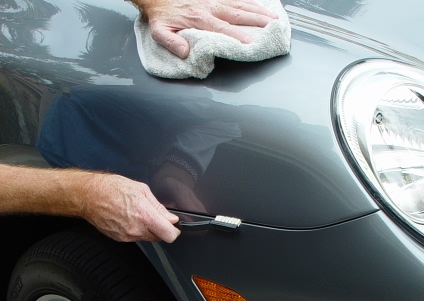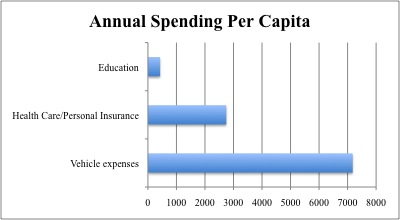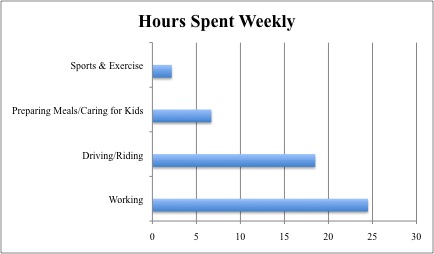Running Saturday morning errands, you may have found yourself in traffic, only to realize you’re stuck behind a line of vehicles inching into a car wash. Each month, nearly half of all American car owners head into one of the nation’s estimated 100,000 car washes to bathe their vehicles in some loving suds.

“Then there are those—and I love these people—” says Mark Curtis, CEO of the Splash Car Wash chain, who visit weekly, core customers “who truly care for their cars” and “see them and their upkeep as a reflection of themselves, and have it as part of their regular routine.” This ardent minority keeps alive the cliché that we Americans love our cars, an oversimplification that fails to capture our divergent, ambivalent, evolving feelings about them. Still, on the whole, we may treat our vehicles better than we treat ourselves.
Take a gander at how much cash and credit we lavish on them. On the household level, transportation accounts for one out of every six dollars Americans spend, the crushing majority of which goes to owning and operating cars. (By contrast, families who use public transportation and own one less car can save up to $8,400 a year, according to APTA). Only housing accounts for a bigger chunk of our budgets; we fork out less for food.
It’s especially illuminating to look at spending “per capita”—that is, how much we spend per person and per vehicle in our household. Though we spend more than twice as much to fuel each body in our home with food than we do to fuel each vehicle in our garage with gasoline, there are several measures by which we treat our cars nearly as well or better than we treat ourselves—and our families.
The average American spends nearly as many dollars annually on the health and well-being of each vehicle—$2,536 for repairs, maintenance, and insurance—as we spend on each humanoid member of the family, whose allocation for healthcare and insurance is $2,747. That’s just $18 more a month preventing and treating disease than repairing dings and replacing tires. The amount we dedicate to buying and financing each car is triple what we spend educating each family member. In other words, we pour three times as much into our depreciating assets than we invest in our own, and our children’s, futures.
And while it is reassuring that we devote more of our household budget to shelter than we do to our vehicles, even a hunk of our housing costs are used to protect and pamper our cars rather than ourselves. Real estate experts have estimated that 13 percent of a home’s value is accounted for by its garage. For the average family, that means that each year about $1,150 of mortgage payments, never mind some property taxes, are going to keeping a roof, not over our children, but over our vehicles. Without that hidden expense, we’d be able to put two-thirds more toward charity or clothing our growing kids.
Then there’s the quality time we devote to them—and even if time isn’t money, it’s still, well, time. According to Arbitron, the average American adult spends 18.5 hours per week on the road, much of this driving solo, compared to the 6.7 hours per week spent preparing meals and caring for children and only 2.2 hours per week exercising to stay healthy and happy.
While driving equals leisure for a few avid enthusiasts, most experience commuting as more stressful than pleasurable. In our sprawling communities, we find that we must drive—or are in the mindless habit of driving—to pursue our social lives or interests. The hope that moving to the suburbs or exurbs will mean more family time has been, for many, a pipe dream.
Americans have been driving fewer miles recently--billions fewer--saving on gas money and other direct costs of car ownership. That’s good news. This reduction doesn’t just save those families money; it saves all of us from incurring the innumerable indirect costs of driving. Further reductions in the time and money we all devote to the national automobile fleet are possible if we recognize that we are treating our cars better than we treat ourselves—and, better yet, if we ask why.







